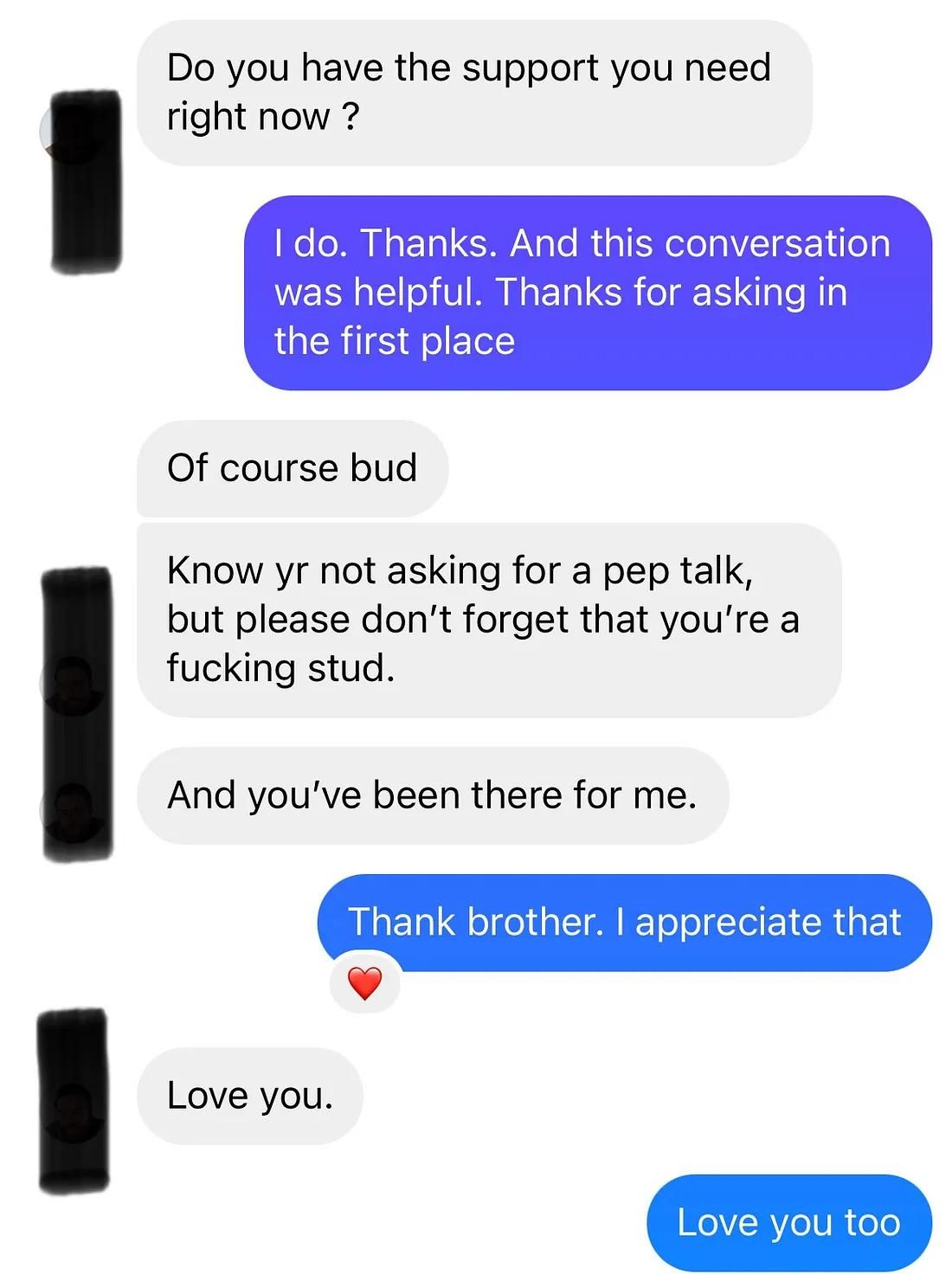

by Rabbi Noam Raucher, MA.ed
A few weeks ago I was going through a rough patch- simultaneously wrestling with: the grief of lost love, resting anxiety that I’ve had most of my life, feelings of low self-worth, and guilt over parenting failures. Talk about a cocktail of stress and emotion! To make it worse, I fell into an old personal trap of trying to figure it out on my own. Despite isolation being a comforting habit, I knew that wasn’t going to help me move past my problems. But then I got a text message from a friend. It was simple and from the moment I received it I knew it was communicated sincerely. He wrote, “How are you doing, brother?” and the rest is history.
In a world where we’re constantly bombarded by notifications, emails, and endless to-do lists, it’s easy to overlook the simplest yet most powerful human connection tool we have: asking, “How are you doing?”
This isn’t just a polite formality, but an invitation to open up, share, and connect. When asked sincerely, it can be a lifeline for someone struggling, a way to deepen relationships, and a small act that has the power to make a significant impact. For men, in particular, who often face societal pressures to maintain a stoic exterior, asking — and answering — this question with sincerity can be transformative.
Men are frequently socialized to hide their vulnerabilities, to be the “strong, silent types.” This can lead to a culture where emotional honesty is scarce, and meaningful connections are few. By asking a simple yet sincere “How are you doing?” we challenge that culture. We signal that it’s okay to drop the armor, to be real, and to share whatever’s on their mind.
When men engage in these small but meaningful conversations, it opens the door to emotional support, which is crucial for mental health. Studies have shown that men who have strong social connections are less likely to experience depression and are better equipped to manage stress. So, this small question isn’t just a conversation starter — it’s a mental health tool.
It’s one thing to ask the question, and another to mean it. Here’s how to do it right:
For men, asking “How are you doing?” with sincerity might feel unfamiliar or even uncomfortable. Here are some tips to make it easier:
Asking “How are you doing?” sincerely is a simple act, but it’s one that can have profound effects, especially for men who might not often have the space to express how they really feel. As Caitlin Moran notes in her book What About Men?, male friendships are often built on shared activities and unspoken understandings rather than overt emotional exchanges, which can make it harder for men to ask this simple question but also more essential. It’s easy, it’s necessary, and it’s something we can all do more often.
It felt so good to be sincerely asked. Most of the time people don’t really want to hear the answer. It’s understandable. Nobody signs up to be a therapist when they are simply inquiring about how your day is going. That being said, showing someone you care about doesn’t take the training and skill of a therapist. It just takes a compassionate heart and about eight minutes of your time, according to ethnographer Simon Sinek. By making this small effort, we not only support those around us but also build stronger, more connected communities where emotional honesty and support are the norms, not the exceptions.
Need technical or website help? Email us at
Copyright © 2026 FJMC International. All rights reserved. Website designed by Addicott Web. | Privacy Policy